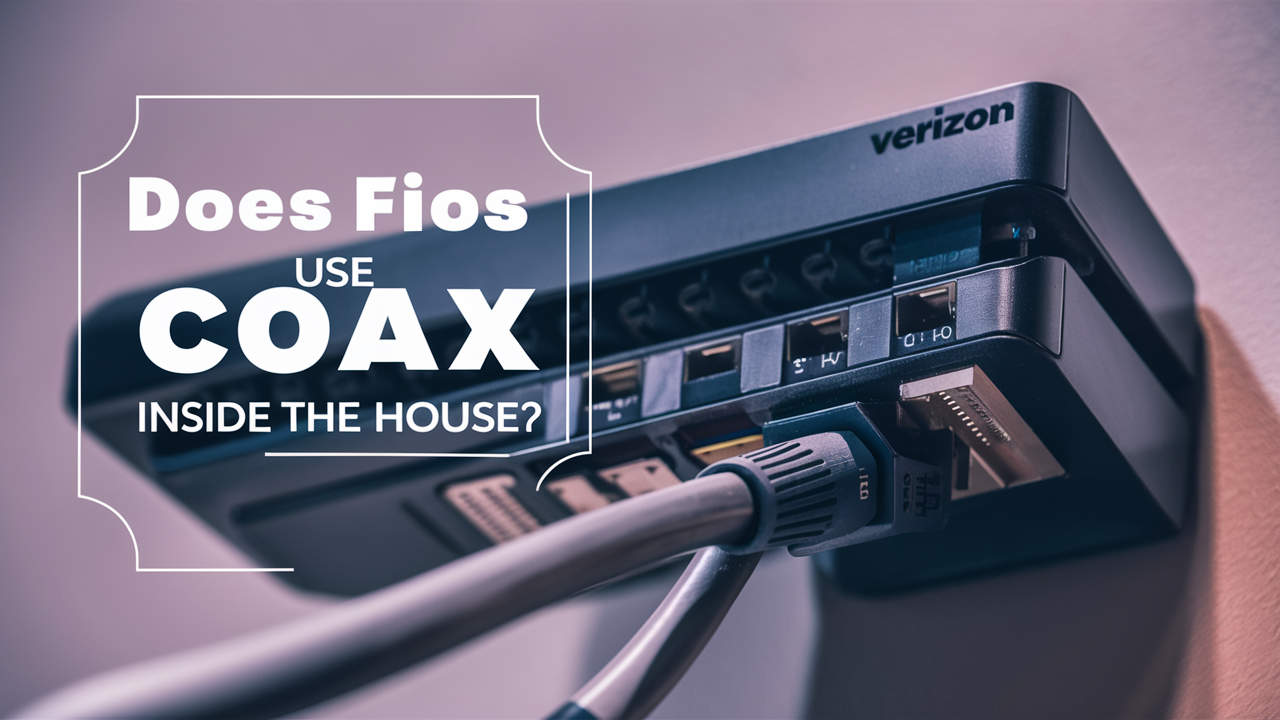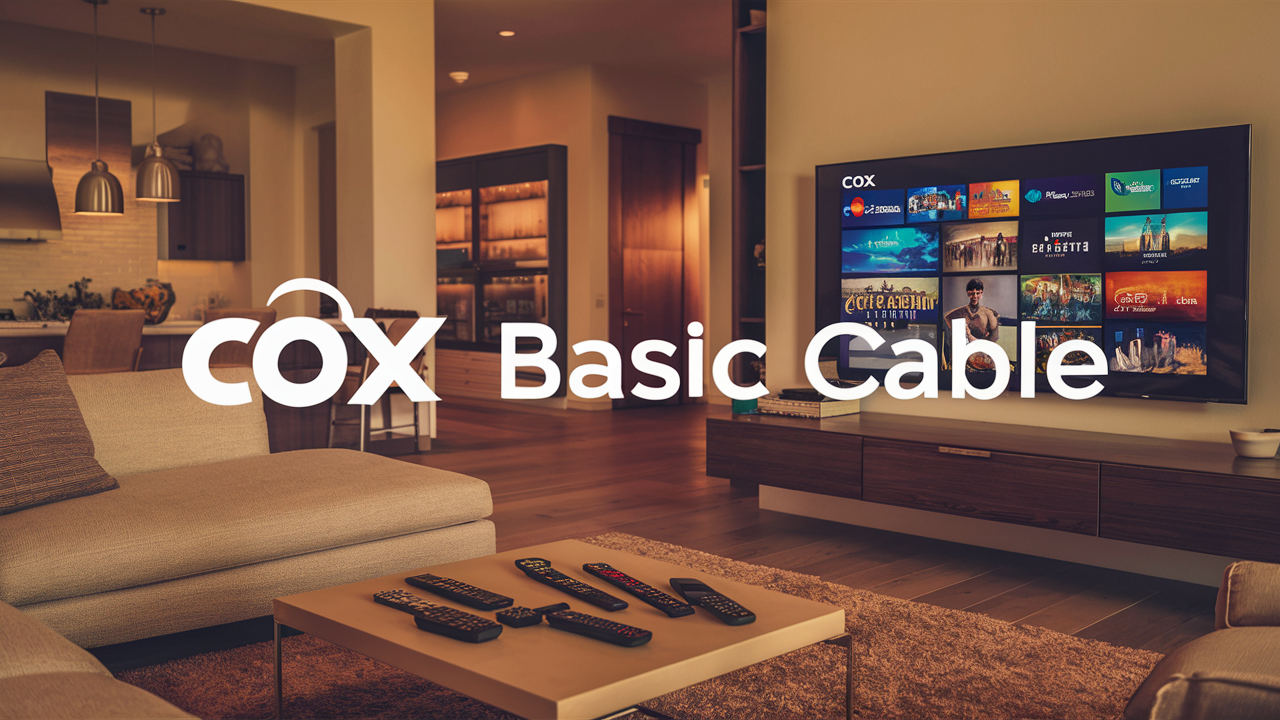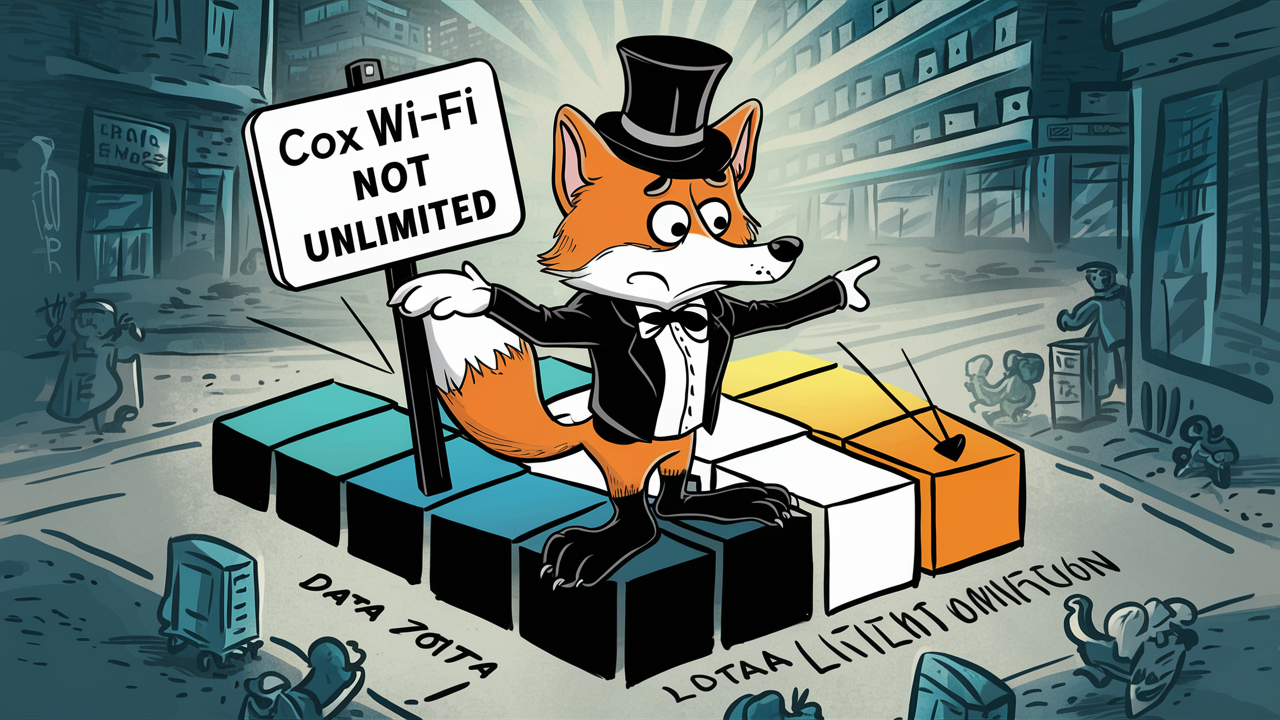Why Did Cox Charge me a one-time Fee?

Discover why Cox Communications might charge a one-time fee. This comprehensive guide breaks down common reasons, from installation and equipment to service changes and early termination penalties, providing clarity and actionable advice for 2025. Understand your bill and avoid unexpected charges.
Introduction: Demystifying Cox One-Time Fees
In the dynamic landscape of telecommunications, unexpected charges on your monthly bill can be a source of frustration and confusion. For Cox Communications customers, encountering a "one-time fee" can spark immediate concern, prompting the question: "Why did Cox charge me a one-time fee?" This article aims to demystify these charges, providing a comprehensive understanding of the various reasons behind them. As of 2025, Cox, like many major service providers, structures its billing to account for initial setup, equipment, service modifications, and adherence to contractual agreements. Understanding these components is crucial for managing your budget effectively and ensuring you're only paying for the services you receive and the terms you've agreed upon. We will delve into the specifics of these fees, explore current trends in provider billing, offer practical advice for navigating your bill, and equip you with strategies to avoid or resolve these charges. By the end of this guide, you'll be better prepared to interpret your Cox statement and confidently address any unexpected one-time charges.
The telecommunications industry, characterized by rapid technological advancements and evolving service packages, often necessitates upfront costs or adjustments that manifest as one-time fees. These can range from installation and activation fees for new services to charges associated with equipment upgrades, technician visits, or even penalties for breaking a service contract. For instance, a new customer signing up for Cox Internet and TV bundles in 2025 might anticipate an installation fee, as professional setup is often required to ensure optimal service delivery. Similarly, if a customer requests a service change, such as upgrading their internet speed or adding a premium channel package, Cox may apply a one-time fee for the activation of these new features. This guide will explore these scenarios in detail, drawing on the latest information and customer service insights relevant to 2025.
Common Culprits Behind Cox One-Time Charges
Several common scenarios lead to one-time charges from Cox Communications. Understanding these is the first step in deciphering your bill.
Installation and Activation Fees
When you first sign up for Cox services, whether it's internet, TV, or home phone, a one-time installation and activation fee is frequently applied. This fee covers the cost of sending a technician to your home to set up the necessary equipment, connect your service, and ensure everything is functioning correctly. In 2025, these fees can vary depending on the complexity of the installation and the specific services ordered. For example, a simple internet-only installation might incur a lower fee than a comprehensive TV and internet package requiring multiple connection points and advanced equipment. Cox often offers promotional periods where these fees might be waived or reduced, especially for new customers signing up for longer-term contracts. It's essential to clarify these fees during the sign-up process and check for any available promotions.
Equipment Charges
Cox provides various equipment, such as modems, routers, and cable boxes, necessary for their services. While some equipment might be leased monthly, there can be instances where a one-time charge applies. This could be for the purchase of specific equipment not included in a standard lease, or for the installation of additional outlets or devices. For instance, if you require an extra cable box for a secondary television or a Wi-Fi extender to improve coverage in a large home, Cox may charge a one-time fee for this hardware and its setup. The cost can vary significantly based on the type and quantity of equipment. Customers should always inquire about equipment costs upfront and consider whether purchasing their own compatible equipment (if allowed by Cox) might be more cost-effective in the long run, though this is becoming less common with provider-locked devices.
Service Changes and Upgrades
Modifying your existing Cox service plan can also trigger one-time fees. If you decide to upgrade your internet speed, add premium TV channels, or change your phone plan, Cox might charge a one-time activation fee for these changes. This fee typically covers the administrative and technical work required to update your service profile and ensure the new features are provisioned correctly on their network. The amount can vary depending on the magnitude of the change. For example, a significant internet speed upgrade might incur a higher fee than adding a single sports channel package. It's always advisable to ask about any associated one-time charges before confirming a service modification. Sometimes, these fees are waived as part of retention efforts or special promotions.
Technician Visits and Service Calls
If you require a technician to visit your home for troubleshooting, repairs, or installations not covered under warranty or standard service, a one-time service call fee may be applied. This fee compensates Cox for the technician's time, travel, and expertise. The circumstances under which this fee is charged can be nuanced. For instance, if the issue is determined to be with Cox's equipment or network infrastructure, the fee might be waived. However, if the problem is found to be with customer-owned equipment, internal wiring, or user error, the customer is typically responsible for the service call charge. As of 2025, Cox's policy on service call fees emphasizes ensuring the problem is indeed with their service before billing the customer. Always clarify the potential charges before scheduling a technician.
Early Termination Fees (ETFs)
Cox, like many internet and cable providers, often offers discounted rates in exchange for a commitment to a specific contract term, typically 12, 24, or sometimes 36 months. If you decide to cancel your service before the contract expires, you will almost certainly incur an Early Termination Fee (ETF). This fee is designed to recoup the revenue Cox would have received over the full contract term and offset promotional discounts previously applied. The ETF amount is usually prorated, meaning it decreases over time as you approach the end of your contract. For example, a 24-month contract might have an ETF of $20 per month remaining on the contract. If you cancel after 18 months, the ETF would be $120 (6 months x $20/month). Understanding your contract terms is paramount to avoiding these substantial one-time charges.
Late Payment Fees and Reconnection Fees
While not always labeled as "one-time" in the same vein as installation fees, late payment fees and reconnection fees function similarly as unexpected charges added to your bill. If your payment is not received by the due date, Cox will typically assess a late fee. If service is suspended due to non-payment, a reconnection fee may also be charged when service is restored. These fees are intended to incentivize timely payments and cover the administrative costs associated with managing overdue accounts and service interruptions. In 2025, Cox's policies generally allow for a grace period, but it's crucial to be aware of the exact payment deadlines and the associated penalties for missing them. Some customers may be eligible for payment arrangements or hardship programs that could help avoid these fees.
Navigating Cox Fee Structures in 2025: What's New?
The telecommunications landscape is constantly evolving, and Cox's fee structures are no exception. In 2025, several trends and policy adjustments are noteworthy for consumers looking to understand their bills.
Increased Transparency in Billing
Regulatory bodies and consumer advocacy groups continue to push for greater transparency in service provider billing. In response, Cox, like other major providers, is increasingly making fee structures more accessible and understandable. Online account portals and mobile apps in 2025 often provide detailed breakdowns of charges, including one-time fees, with clear explanations. The aim is to reduce customer confusion and disputes by clearly itemizing costs before they appear on the final bill. This includes better upfront communication about potential fees during the sales process and service change interactions.
Dynamic Pricing and Promotional Offers
In 2025, providers like Cox are leveraging dynamic pricing strategies more aggressively. This means that the cost of services, including potential one-time fees, can fluctuate based on demand, region, and promotional campaigns. New customer offers, loyalty discounts, and bundled package deals often come with specific terms that might waive or reduce certain one-time charges. Conversely, opting out of these promotions or choosing month-to-month plans might result in higher upfront costs. Staying informed about current promotions and understanding how they impact one-time fees is crucial. For instance, a "no installation fee" promotion might be tied to signing a 24-month agreement.
The Rise of Self-Installation Options
To reduce operational costs and potentially offer more competitive pricing, Cox is increasingly promoting self-installation options for certain services, particularly internet. In 2025, if your home is already wired for Cox service, you might be able to install your modem and begin service without a technician visit, thereby avoiding the associated installation fee. This option is typically available for customers who are re-activating service or moving within a Cox-served area. However, it's important to note that self-installation is not always feasible or recommended, especially for complex setups or if you're unfamiliar with networking equipment. Cox will clearly indicate if self-installation is an option and provide the necessary instructions and equipment.
Bundling Strategies and Fee Implications
Bundling multiple Cox services (internet, TV, phone) remains a popular strategy for consumers seeking convenience and potential savings. In 2025, Cox continues to offer attractive bundle deals. However, these bundles can sometimes have their own set of one-time fees, or the fees for individual services might be presented differently within the bundle. For example, a new customer might see a significantly reduced installation fee when bundling services compared to signing up for a single service. Conversely, adding a new service to an existing bundle might incur a separate activation fee. It's vital to scrutinize the total cost, including all one-time charges, when evaluating bundled packages versus individual services.
Impact of Technology Upgrades
As Cox continues to invest in network upgrades and new technologies (e.g., faster internet speeds, enhanced Wi-Fi capabilities, 4K TV services), these advancements can sometimes be accompanied by one-time fees. For instance, accessing the latest high-speed internet tiers might require a newer modem or router, and there could be a one-time charge for this equipment or its installation. Similarly, adopting new interactive TV features might involve a one-time setup cost. Customers should stay informed about Cox's technological roadmap and inquire about any associated one-time fees when considering upgrades or new service offerings in 2025.
Step-by-Step Guide: Understanding and Resolving Your Cox Bill
Encountering an unexpected one-time fee on your Cox bill can be stressful. Follow these steps to understand and potentially resolve the issue.
1. Review Your Bill Carefully
The first and most critical step is to meticulously examine your Cox statement. Look for the specific line item identified as a "one-time fee." Note the date it was applied, the amount, and any accompanying description. Compare this charge against your recent service changes, installation dates, or any communications you've had with Cox. Many billing errors occur due to simple oversights or misinterpretations, so a thorough review is essential.
2. Consult Your Service Agreement and Cox's Website
Refer back to your original service agreement or contract. This document outlines the terms and conditions of your service, including any applicable fees for installation, equipment, and early termination. Cox's official website (cox.com) is also a valuable resource. It provides detailed information on current fees, service plans, and customer support FAQs. Look for sections related to billing, fees, and service policies. Understanding the standard fees outlined by Cox will help you determine if the charge on your bill is legitimate.
3. Gather Evidence and Documentation
Before contacting Cox, compile all relevant documentation. This includes copies of your bill showing the disputed charge, your service agreement, any promotional offer details, emails or chat logs with Cox representatives regarding service changes or issues, and notes from previous phone calls (dates, times, representative names, and conversation summaries). Having this information readily available will streamline your communication with Cox and strengthen your case if the charge is indeed an error.
4. Contact Cox Customer Service
Reach out to Cox customer service through their official channels. This can typically be done via phone, online chat, or through your My Account portal. When you speak with a representative, clearly and calmly explain the charge you are questioning. State the specific fee, the date it appeared on your bill, and why you believe it may be incorrect, referencing your documentation. Be polite but firm. Ask for a detailed explanation of the charge and inquire if it can be waived or adjusted.
5. Escalate if Necessary
If the initial customer service representative cannot resolve your issue or provide a satisfactory explanation, politely ask to speak with a supervisor or a member of a specialized billing or retention department. These individuals often have more authority to make adjustments or offer solutions. Document the name and title of anyone you speak with during the escalation process.
6. Consider Formal Complaints or Arbitration
If you exhaust all avenues with Cox customer service and still believe you have been unfairly charged, you may consider filing a formal complaint with consumer protection agencies like the Better Business Bureau (BBB) or the Federal Communications Commission (FCC). Your service agreement may also outline a dispute resolution process, which could include mediation or arbitration. These steps should be considered as a last resort.
Cox Fee Comparison: Installation vs. Other Charges
Understanding how different types of one-time fees compare can help you prioritize where to focus your attention when reviewing your Cox bill.
| Fee Type | Typical Amount (2025 Estimate) | Reason for Charge | Negotiability/Avoidance |
|---|---|---|---|
| Standard Installation Fee | $50 - $100+ | Professional setup of services and equipment at your home. | Often waived with promotions, long-term contracts, or self-installation options. |
| Equipment Activation/Setup Fee | $10 - $50 | Activating new or additional leased equipment (e.g., extra cable boxes, modems). | May be negotiable. Sometimes bundled into installation or waived with specific packages. |
| Service Change Fee | $15 - $75 | Activating upgrades, downgrades, or adding new services to an existing account. | Can sometimes be waived as a courtesy or part of retention efforts. Inquire before confirming changes. |
| Technician Service Call Fee | $75 - $150+ | On-site visit for troubleshooting or repairs not covered by Cox. | Waived if the issue is with Cox's network/equipment. Avoidable by troubleshooting remotely first. |
| Early Termination Fee (ETF) | Varies (e.g., $10-$20 per remaining month of contract) | Cancelling service before the end of a contract term. | Difficult to avoid once contract is signed. Best avoided by fulfilling contract terms or negotiating a buyout in specific circumstances. |
| Late Payment Fee | $5 - $15 | Failure to pay the bill by the due date. | Avoidable by paying on time. Contact Cox for payment arrangements if facing hardship. |
| Reconnection Fee | $20 - $50 | Restoring service after it was suspended due to non-payment. | Avoidable by paying the outstanding balance promptly. |
As the table illustrates, installation fees are often among the highest one-time charges, but they are also frequently negotiable or waivable through promotions. Early Termination Fees, while not always the highest single charge, can accumulate significantly over time. Late payment and reconnection fees are generally smaller but are entirely avoidable with responsible account management. Understanding these differences helps in prioritizing which fees to scrutinize most closely and which ones are within your control.
Best Practices for Avoiding Unnecessary Cox Fees
Proactive management and informed decision-making are key to minimizing unexpected one-time charges from Cox Communications.
- Read the Fine Print: Before signing any contract or agreeing to a service change, thoroughly read all terms and conditions. Pay close attention to sections detailing fees, contract lengths, and cancellation policies. Don't hesitate to ask for clarification on anything you don't understand.
- Leverage Promotions and Discounts: Cox frequently offers promotions for new customers or for signing longer-term contracts. These can include waived installation fees, discounted equipment, or reduced monthly rates. Actively seek out these offers and understand their terms to maximize savings and avoid upfront costs.
- Consider Self-Installation: If Cox offers a self-installation option for your service, and you are comfortable with the process, opt for it. This can eliminate the standard installation fee, saving you a significant amount. Ensure you have the necessary tools and follow Cox's instructions carefully.
- Maintain Your Equipment: If you are leasing equipment from Cox, take good care of it. Damage or loss of leased equipment can result in substantial one-time replacement fees. If you own your equipment (where permitted), ensure it is compatible and functioning correctly to avoid service issues that might lead to technician visit fees.
- Pay Your Bills On Time: The simplest way to avoid late payment and reconnection fees is to ensure your Cox bill is paid by the due date each month. Set up automatic payments or calendar reminders to prevent missed payments. If you anticipate difficulty paying, contact Cox customer service *before* the due date to discuss payment arrangements.
- Be Cautious with Service Changes: While upgrading services can be beneficial, understand the associated one-time activation fees. Evaluate if the benefits of the upgrade outweigh the immediate cost. Sometimes, waiting for a promotional period or bundling offers can make these changes more cost-effective.
- Understand Contractual Obligations: Be aware of your contract end date. If you need to move or cancel service, try to do so close to the end of your contract term to avoid Early Termination Fees. If you must cancel early, understand the exact ETF calculation and explore any potential buyout options Cox might offer.
Advanced Strategies for Fee Management and Negotiation
Beyond the basic best practices, advanced strategies can empower you to manage Cox fees more effectively and even negotiate favorable terms.
Proactive Account Review and Optimization
Regularly (e.g., quarterly or semi-annually) review your Cox account online or via their app. Look for opportunities to optimize your plan. Are you paying for services you no longer use? Could a different bundle offer more value? Sometimes, Cox may proactively offer upgrades or new packages that could be beneficial, but it's always wise to compare these against your current needs and costs. This proactive approach can help you identify potential fee traps or areas where you might be overpaying.
Strategic Use of Competitor Offers
If you are considering canceling Cox due to pricing or fees, research current offers from competing internet and TV providers in your area. Often, Cox's retention department is empowered to offer significant discounts or waive certain fees to keep customers. When you contact Cox to discuss canceling, mentioning a competitor's offer (e.g., "Competitor X is offering 1 Gbps internet for $60/month with no installation fee") can be a powerful negotiation tactic. Be prepared to walk away if they cannot meet your needs.
Bundling and Unbundling Analysis
While bundling often seems like the best deal, it's not always the case. In 2025, analyze the cost of your bundle versus the cost of individual services or alternative bundles. Sometimes, unbundling certain services (like a home phone line you rarely use) and acquiring them elsewhere, or simply dropping them, can lead to overall savings and potentially eliminate associated one-time activation fees for those specific services. Conversely, sometimes a new bundle can be structured to include a waived installation fee that offsets other costs.
Leveraging Loyalty and Tenure
As a long-standing Cox customer, your loyalty can be a bargaining chip. When discussing fees or potential price increases, mention your tenure as a customer. Retention specialists often have more flexibility to offer discounts, waive fees, or provide upgrades to long-term customers to prevent churn. Frame your request as seeking a rate that reflects your loyalty and continued business.
Understanding Technician Visit Nuances
If you suspect a technician visit fee might be unfairly applied, delve deeper into the troubleshooting process. Ask Cox support to guide you through remote diagnostics. If a technician visit is deemed necessary, clarify precisely what the technician will be looking for and what constitutes a billable issue versus a Cox responsibility. If the technician finds the issue is indeed with Cox's equipment or network, ensure the service call fee is removed from your bill. Keep detailed notes of the technician's findings.
The Role of Contracts and Service Agreements
Contracts and service agreements are the foundational documents governing your relationship with Cox Communications. They dictate not only the services you receive and their base price but also the specific terms surrounding one-time fees, particularly those related to commitment periods.
Understanding Contract Terms
In 2025, Cox typically offers services under various contract lengths, commonly 12, 24, or 36 months. These contracts often come with discounted monthly rates compared to month-to-month plans. However, this discount is contingent upon you fulfilling the entire contract term. The contract will explicitly detail the monthly service costs, any initial one-time fees (like installation), equipment lease costs, and, crucially, the Early Termination Fee (ETF) structure. It's imperative to know your contract's start and end dates.
Impact on One-Time Fees
Signing a contract often influences the applicability of certain one-time fees. For instance, a common promotional offer is to waive the standard installation fee for customers who commit to a 24-month agreement. Without a contract, this installation fee might be a mandatory upfront charge. Similarly, contracts can sometimes lock in equipment lease rates, preventing future increases. Conversely, the contract's primary leverage against the customer is the ETF, a significant one-time charge if broken.
Month-to-Month vs. Contractual Agreements
Choosing a month-to-month plan offers flexibility, allowing you to cancel or change services at any time without an ETF. However, these plans typically come with higher monthly rates and may not be eligible for the same promotional discounts, potentially leading to higher upfront one-time fees like installation. Contractual agreements, while less flexible, usually offer lower monthly costs and can be instrumental in getting certain one-time fees waived. The decision between the two depends on your personal circumstances, commitment level, and tolerance for potential future price changes.





